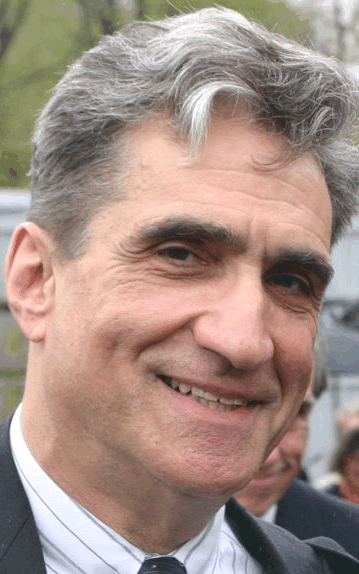March 22, 2010, NOTE: The winners have been announced here.
March 10, 2010, NOTE: See list of nine finalists here.
March 8, 2010, NOTE: Voting round closed. See list of twenty semifinalists here.
March 1, 2010, NOTE: Nominations are now closed. Go here to see the list of nominees, and vote.
February 22, 2010, NOTE: Nominations are now open.
Dear Readers, Writers, Bloggers,
 In May of last year we announced that we would start awarding four sets of prizes every year (on the two solstices and the two equinoxes) for the best blog writing in the areas of science, philosophy, politics, and arts & literature. We awarded the science prizes, judged by Steven Pinker, on June 21, and then announced the winners of the philosophy prizes, judged by Daniel C. Dennett, on September 22. This was followed by the politics prizes, judged by Tariq Ali, for which the winners were announced on December 21. We are now going to do the Arts and Literature Prizes, and here's how it will work: we will soon begin accepting nominations for this prize. After the nominating period is over, there will be a round of voting by our readers which will narrow down the entries to the top twenty semi-finalists. After this period, we will take these top twenty voted-for nominees, and the four main daily editors of 3 Quarks Daily (Abbas Raza, Robin Varghese, Morgan Meis, and Azra Raza) will select six finalists from these, plus they may also add up to three wildcard entries of their own choosing. The three winners will be chosen from these by former U.S. Poet Laureate, Robert Pinsky, who, we are extremely pleased, has agreed to be the final judge.
In May of last year we announced that we would start awarding four sets of prizes every year (on the two solstices and the two equinoxes) for the best blog writing in the areas of science, philosophy, politics, and arts & literature. We awarded the science prizes, judged by Steven Pinker, on June 21, and then announced the winners of the philosophy prizes, judged by Daniel C. Dennett, on September 22. This was followed by the politics prizes, judged by Tariq Ali, for which the winners were announced on December 21. We are now going to do the Arts and Literature Prizes, and here's how it will work: we will soon begin accepting nominations for this prize. After the nominating period is over, there will be a round of voting by our readers which will narrow down the entries to the top twenty semi-finalists. After this period, we will take these top twenty voted-for nominees, and the four main daily editors of 3 Quarks Daily (Abbas Raza, Robin Varghese, Morgan Meis, and Azra Raza) will select six finalists from these, plus they may also add up to three wildcard entries of their own choosing. The three winners will be chosen from these by former U.S. Poet Laureate, Robert Pinsky, who, we are extremely pleased, has agreed to be the final judge.
The first place award, called the “Top Quark,” will include a cash prize of one thousand dollars; the second place prize, the “Strange Quark,” will include a cash prize of three hundred dollars; and the third place winner will get the honor of winning the “Charm Quark,” along with a two hundred dollar prize.
* * *
(Welcome to those coming here for the first time. Learn more about who we are and what we do here, and do check out the full site here. Bookmark us and come back regularly, or sign up for the RSS feed.)
* * *
Details:
 The winners of the Arts & Literature Prize will be announced on March 20, 2010. Here's the schedule:
The winners of the Arts & Literature Prize will be announced on March 20, 2010. Here's the schedule:
February 22:
- The nominations are opened. Please nominate your favorite blog entry by placing the URL for the blog post (the permalink) in the comments section of this post. You may also add a brief comment describing the entry and saying why you think it should win.
- Blog posts longer than 4,000 words are not eligible.
- We will accept poems and fiction, as well as book or art reviews, criticism, and other types of writing about arts or literature.
- Each person can only nominate one blog post.
- Entries must be in English.
- The editors of 3QD reserve the right to reject entries that we feel are not appropriate.
- The blog entry may not be more than a year old. In other words, it must have been written after February 21, 2009.
- You may also nominate your own entry from your own or a group blog (and we encourage you to).
- Guest columnists at 3 Quarks Daily are also eligible to be nominated, and may also nominate themselves if they wish.
- Nominations are limited to the first 200 entries.
- Prize money must be claimed within a month of the announcement of winners.
- You may also comment here on our prizes themselves, of course!
February 28, 2010
- The nominating process will end at 11:59 PM (NYC time) of this date.
- The public voting will be opened immediately afterwards.
March 7, 2010
- Public voting ends at 11:59 PM (NYC time).
March 22, 2010
- The winners are announced.
And another Mini-Contest!
For each of our contests, I have asked designer friends of mine to produce “trophy” logos that the winners of that prize can display on their own blogs. You can see all of them here. I am now running out of designer friends, so here is an offer: send me your design for a logo for the winners of the Arts & Literature Prize (it must contain the same info as in the examples I have linked to, and the size is 160 X 350 pixels), and if I use it, I'll send you $25. Try. It'll be fun. Deadline: March 10, 2010.
One Final and Important Request
If you have a blog or website, please help us spread the word about our prizes by linking to this post. Otherwise, just email your friends and tell them about it! I really look forward to reading some very good material, and think this should be a lot of fun for all of us.
Best of luck and thanks for your attention!
Yours,
Abbas
